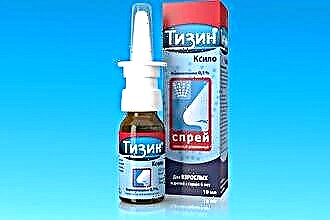Which doctor should i contact for angina? Angina (tonsillitis) is an infectious disease characterized by inflammation in the lymphadenoid formations (tonsils) and ciliated epithelium lining the surface of the oropharynx. Untimely access to a doctor can cause generalization of catarrhal and purulent processes, which is fraught with complications.
Which specialist treats angina? Diagnosis and treatment of ENT diseases can be carried out by three specialists: an otolaryngologist, an infectious disease specialist and a therapist. The choice of a specialist directly depends on the concomitant symptoms, the reasons for the development and form of pathology, the presence of complications and the patient's history.
Competence of the therapist
What diseases does the therapist treat? The therapist is a generalist specialist who specializes in the study of the cause-and-effect mechanisms of the development of infectious pathologies, including tonsillitis. A specialist carries out differential diagnostics in case of suspicion of the development of diseases such as:
- catarrhal sore throat;
- laryngotracheitis;
- pharyngitis;
- pyelonephritis;
- otitis;
- flu;
- ARVI;
- diseases of the bronchi and lungs;
- post-infectious complications.
Important! The therapist does not treat secondary tonsillitis, provoked by the development of specific microorganisms.
From the above, it follows that the physician specializes in the diagnosis and treatment of uncomplicated acute tonsillitis. If necessary, the therapist prescribes a course of drug treatment with antibacterial and anti-inflammatory drugs.
Reason for contacting a therapist
When is it necessary to seek help from a specialist? The development of acute tonsillitis in an adult is often signaled by subfebrile and febrile fever, as well as symptoms of general intoxication of the body. Given that the therapist treats uncomplicated forms of tonsillitis, you should contact him if you experience the following symptoms:
- sore throat;
- pain when swallowing;
- hyperemia of the pharyngeal mucosa;
- inflammation of the tonsils;
- temperature increase;
- an increase in regional lymph nodes.
Important! Rhinitis, lacrimation, and ear congestion may indicate complications in which you should seek help from an otolaryngologist.
If a sore throat is suspected, the therapist should conduct a series of simple clinical and instrumental studies. A visual examination of the oropharynx with the delivery of mandatory tests (general analysis of blood and urine) makes it possible to find out the nature of inflammatory processes in the mucous membrane, the degree of tissue damage, the presence of complications and the form of pathology. In the absence of severe complications, the therapist prescribes the use of antibacterial or antiviral pharmacotherapy agents.
Who is ENT?
ENT is a doctor specializing in the treatment and prevention of diseases of the nose, ear and throat. The listed organs have a close relationship, therefore, with the progression of catarrhal processes in the pharyngeal mucosa, damage to the auditory analyzer and nose is not excluded. In what cases should you consult a specialist for angina?
As a rule, ENT deals with the treatment of throat pathologies complicated by inflammation in other organs of the respiratory system. If complications are found, the therapist prescribes a referral to the otolaryngologist for the patient. It should be noted that the specialist diagnoses and treats diseases provoked by Miniere's disease and other specific pathologies.
If purulent processes are detected in the ciliated epithelium, prone to progression, complex treatment is prescribed with the use of physiotherapy and antibiotics. If necessary, the ENT carries out the sanitation of the oral cavity in inpatient and outpatient conditions.
Otolaryngologist competence
Tonsillitis is not one of the severe infectious pathologies, but if not treated promptly, it can give serious complications. Even with regression of purulent and catarrhal processes, there is a risk of recurrence of the disease, which can lead to damage not only to the airways, but also to other vital organs. ENT successfully treats tonsillitis complicated by diseases such as:
- sinusitis;
- sinusitis;
- otitis media;
- labyrinthitis;
- lymphadenitis;
- laryngotracheitis;
- ethmoiditis;
- adenoiditis.
Untimely access to a specialist can cause chronicity
inflammation. Subsequent intoxication of the body in most cases leads to the development of tonsillitis sepsis.
Can I make an appointment with an otolaryngologist if I suspect chronic tonsillitis in an adult? First of all, it is advisable to undergo a preliminary examination by a therapist, who, if necessary, will send the patient to a narrower specialist.
When to see an otolaryngologist?
With the development of obvious complications, you should seek help directly from an otolaryngologist. The ENT is obliged to admit a patient with obvious signs of the development of angina, complicated by rhinitis, conjunctivitis, otitis media, adenoiditis, etc. Direct indications for seeking help from a specialist are:
- lacrimation;
- discharge from the ear;
- swelling of the pharyngeal mucosa;
- inflammation of the conjunctiva;
- otorrhagia;
- pain in the maxillary sinus area;
- purulent foci on the tonsils;
- white coating on the tongue and back wall of the oropharynx.
Also, ENT treats secondary forms of tonsillitis, provoked by the development of other pathologies, in particular diphtheria, mononucleosis, typhoid, etc. If you do not start treatment of the main and secondary disease in time, this can contribute to the development of formidable complications.
To determine the type of pathology, the ENT will conduct a pharyngoscopic examination and make a bacterial culture for the microflora. Only after determining the type of pathogen will the doctor be able to prescribe adequate antibacterial treatment. To eliminate the inflammation provoked by the bacteria that produce beta-lactamase, broad-spectrum antibiotics are prescribed. It is possible to eliminate pathological processes in the throat caused by staphylococci and streptococci with the help of penicillin medications.
What does an infectious disease specialist treat?
Typical sore throat is easy to treat, so it does not require referral to a narrower specialist. However, the treatment of specific forms of pathologies, such as syphilitic angina, should be carried out under the supervision of an infectious disease specialist. An infectious disease specialist is a doctor who specializes in the treatment of infectious diseases of the skin, blood, gastrointestinal tract and respiratory system. Reviews about casino volcano 24 !!! For high rollers I recommend Joy Casino and Vulcan bet. Where is my account, my bonuses and savings? The largest rating of the best casinos in Ukraine with no deposit bonuses. Some users have nicknamed this club eldorado 24 casino, because the support is always in touch and is very responsive to all the player's problems. Virtual machines are much better than "sticks" and ordinary offline gambling halls. He treats pathologies provoked by the development of specific microorganisms.
However, the treatment of specific forms of pathologies, such as syphilitic angina, should be carried out under the supervision of an infectious disease specialist. An infectious disease specialist is a doctor who specializes in the treatment of infectious diseases of the skin, blood, gastrointestinal tract and respiratory system. Reviews about casino volcano 24 !!! For high rollers I recommend Joy Casino and Vulcan bet. Where is my account, my bonuses and savings? The largest rating of the best casinos in Ukraine with no deposit bonuses. Some users have nicknamed this club eldorado 24 casino, because the support is always in touch and is very responsive to all the player's problems. Virtual machines are much better than "sticks" and ordinary offline gambling halls. He treats pathologies provoked by the development of specific microorganisms.
Together with an otolaryngologist, the doctor diagnoses adenoviral, rhinoviral, syphilitic and other forms of tonsillitis. When an adult develops a serious illness, he performs serological diagnostics, during which he determines the presence of antigens in the blood serum. You should contact a specialist if you find symptoms such as:
- headache;
- nausea and vomiting;
- sleep disturbance;
- myalgia;
- rashes on the body;
- diarrhea;
- enlarged lymph nodes;
- purulent formations in the oropharynx.
The doctor accepts patients without specific preparations. However, it is not recommended to use alcohol and hormonal drugs 24 hours before the test.

 inflammation. Subsequent intoxication of the body in most cases leads to the development of tonsillitis sepsis.
inflammation. Subsequent intoxication of the body in most cases leads to the development of tonsillitis sepsis.

